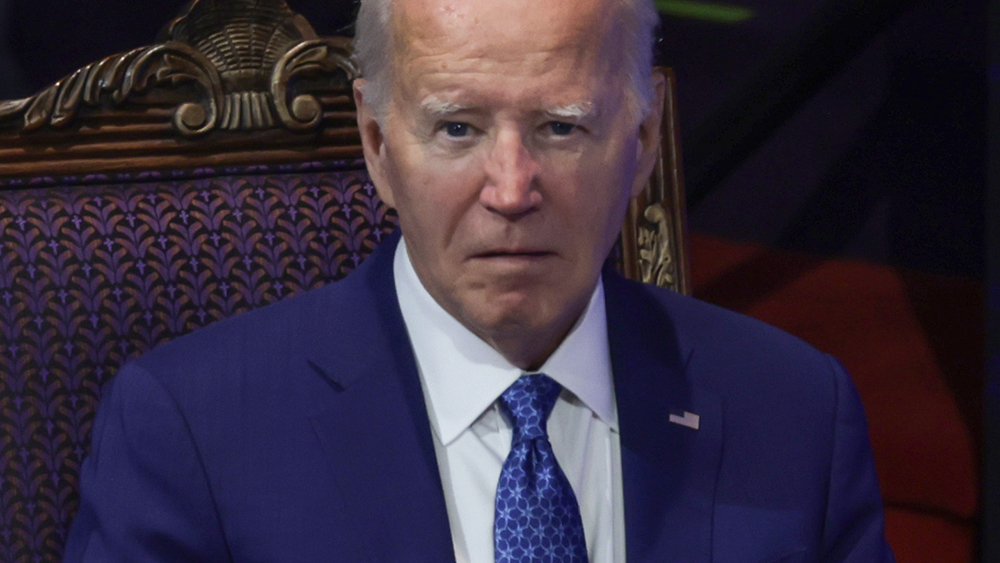European Court of Justice rules against Pfizer and the European Commission’s secretive, liability-free contracts
07/24/2024 / By Lance D Johnson

On July 17, 2024, the European Court of Justice ruled that the European Commission (one of the three branches of the European Union) wrongfully withheld critical details regarding its multi-billion-euro contracts with Pfizer, for the mass distribution of their so-called COVID-19 vaccines. This decision marks a pivotal moment in the ongoing scrutiny facing European Commission President Ursula von der Leyen, who is already under fire for privately conspiring with Pfizer CEO Albert Bourla to mass distribute Pfizer’s experimental shots.
According to Ursula’s own confessions, she privately texted Pfizer CEO Albert Bourla to secure 11 contracts, 4.6 billion in vaccines, while transferring €71 billion of public money to Big Pharma. In 2020, Ursula told the New York Times she was texting Pfizer CEO Albert Bourla to secure 1.9 billion doses of their COVID-19 vaccine for the entire EU population, which is just 448 million people. This liability-free contract protects Pfizer, while exploiting all Europeans without recourse when the vaccines damage them.
European Court exposes corrupt EU and opens up possibility of lawsuits against Pfizer
The ruling stemmed from a lawsuit initiated by Green MEPs in October 2021, demanding full disclosure of the vaccine purchase agreements negotiated by the European Commission. The MEPs argued that transparency was essential to understand the terms and conditions under which these crucial agreements were made. Despite months of correspondence, the Commission only provided heavily redacted versions of the contracts, prompting the legal challenge.
The General Court of the European Union ultimately sided with the MEPs, emphasizing that the Commission’s decision to redact significant portions of the contract was unjustified. The court criticized the Commission’s withholding of specific clauses related to indemnification. These indemnification clauses grant Pfizer immunity when their vaccines cause adverse events. The court contended that the Commission failed to substantiate how disclosing these provisions would harm the commercial interests of Pfizer. By concealing the indemnification clause, it appears that Pfizer and Commission knew that the vaccine would cause damage to the population, and all harms could be absolved by the contract, without anyone knowing about the secret agreement.
These secretive contracts with Pfizer defrauded the public, leading to policies that suspended civil liberties, while misleading and coercively harming individuals amid the implementation of a global vaccine agenda and a biosecurity police state.
Tilly Metz, one of the Green MEPs involved in the lawsuit, said, “The new European Commission must now adapt their handling of access to documents requests to be in line with today’s ruling.”
Pfizer can be held accountable for “defective product” despite its secret indemnity clause signed with the EU
Beyond the transparency issue, the court’s ruling also addressed the liability of pharmaceutical companies in cases of vaccine defects. It emphasized that under EU law, producers cannot limit their liability if harm is caused by a defective product. This aspect of the ruling clarifies that Pfizer and other vaccine manufacturers could be held liable for damages resulting from vaccine defects, contrary to previous assumptions about limited liability in such cases.
The ruling invokes Directive 85/374/EEC, which defines the responsibilities of producers regarding defective products, including provisions on damage caused by death or personal injuries. The court clarified that a producer is liable for the damage caused by a defect in its product and its liability “cannot be limited or excluded vis-à-vis the victim by a clause limiting, or providing an exemption from, liability under Directive 85/374.” This interpretation by the European Court of Justice potentially opens the door for legal claims against Pfizer.
The decision has exposed the treacherous and clandestine handling of vaccine contracts at the onset of the lockdowns and the forced COVID-19 vaccine experiment. This decision will have broader implications for public health policy and challenge the role of the EU and centralized authorities over personal medical decisions.
Transparency is crucial not only for the sake of holding pharmaceutical companies accountable, but also for the sake of informed consent and saving lives. If more people knew that Pfizer was conspiring with the EU and crafting a secret indemnity clause when their vaccine harmed people, then there would have been far less participation in the global vaccine agenda, and ultimately more lives would have been spared.
Sources include:
Submit a correction >>
Tagged Under:
accountability, big government, chemical violence, corruption, defective product, European Commission, indemnity clause, informed consent, liability, Pfizer, progress, secrecy, transparency, vaccine contracts, vaccine wars, vaccines
This article may contain statements that reflect the opinion of the author
RECENT NEWS & ARTICLES
COPYRIGHT © 2017 CORRUPTION NEWS


















